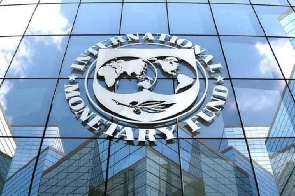 The International Monetary Fund
The International Monetary Fund
The Director General of the International Monetary Fund (IMF), Kristalina Georgieva, has said countries will have to include climate related financial stability risks in financial sector surveillance – through standardized disclosure of these risks, enhanced stress tests and assessments of supervisory frameworks.
She noted that Climate Change poses severe threats to economic and financial stability.
In a remark at the Climate Adaptation Summit on Monday January 25, she said as world leaders aim to exit the COVID-19 pandemic and the economic crisis it has triggered “we must face a greater threat – that of a changing climate.”
She added “It is a fundamental risk to economic and financial stability. It is also an opportunity to reinvigorate growth and create new green jobs.
“Our research shows that combining steadily rising carbon prices with a green infrastructure push can boost global GDP over the next 15 years by about 0.7 percent and generate work for millions of people.
“This is why at the IMF we embrace the transition to the new climate economy — one that is low carbon and climate resilient, that helps fight the causes of climate change and adapt to its consequences.
“This means actions in four key areas: First, integrating climate in our annual country economic assessments – our Article IV consultations. In highly vulnerable countries we focus on adaptation; andwe are building up mitigation analysis, including carbon pricing, in our assessments of large emitters.
“Second, including climate related financial stability risks in financial sector surveillance – through standardized disclosure of these risks, enhanced stress tests and assessments of supervisory frameworks.
“Third, scaling up climate in capacity development to help equip finance ministries and central banks with the skills needed to take climate considerationsinto account.
“Fourth, mainstreaming climate indicators in macroeconomic data. We will launch a Climate Change Dashboard this year—with indicators to track the economic impact of climate risks and the measures taken to mitigate them.”
- IMF under pressure to cut billions of dollars in fees for large borrowers
- Central Banks must be free of election-year political pressures - IMF warns
- Ghana's economic stability path will be painful – IMF boss
- Establish fiscal council to check excessive spending – IMF to government
- IMF Managing Director leaves Ghana after fruitful 2-day visit
- Read all related articles












